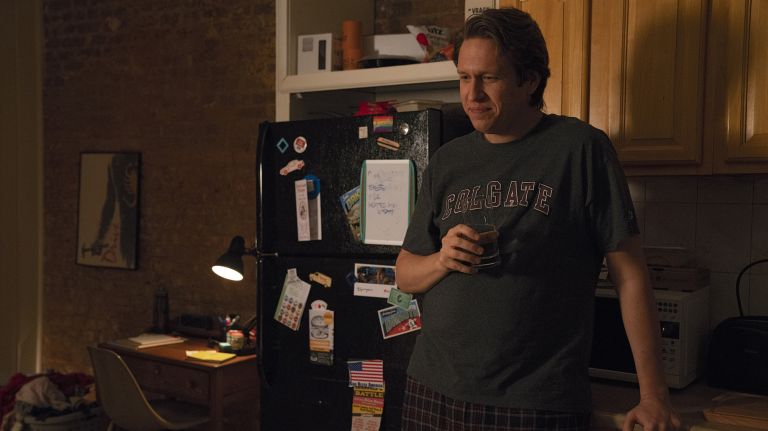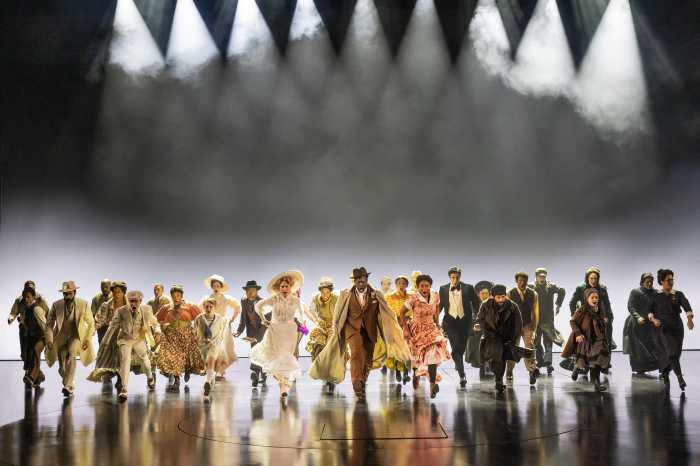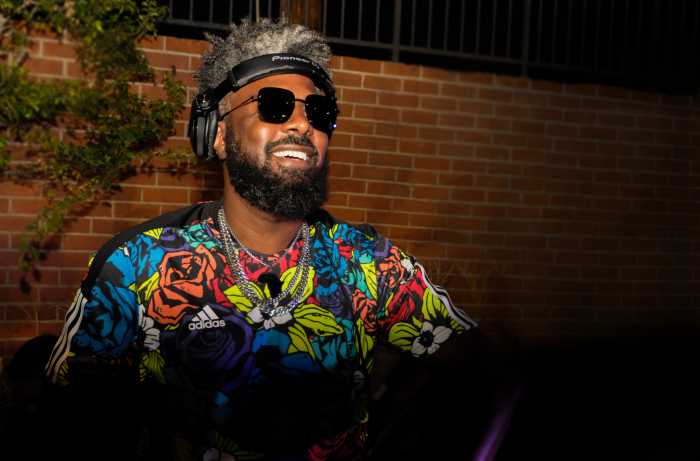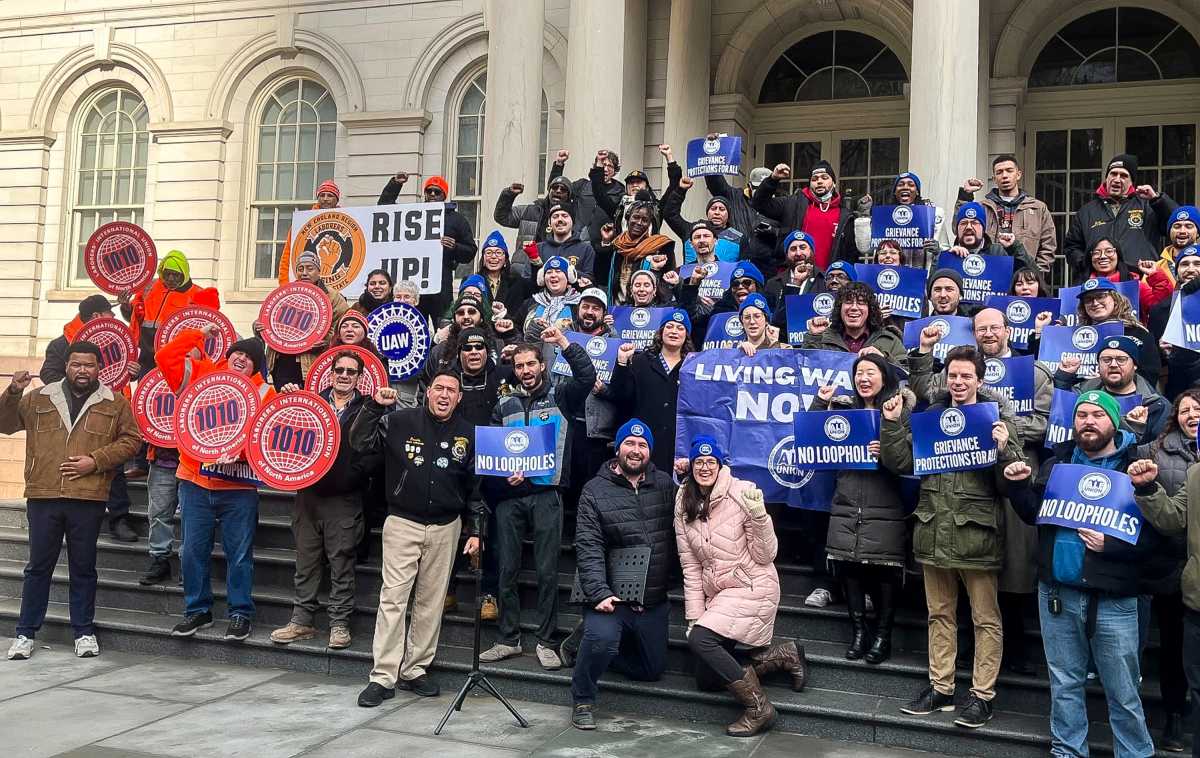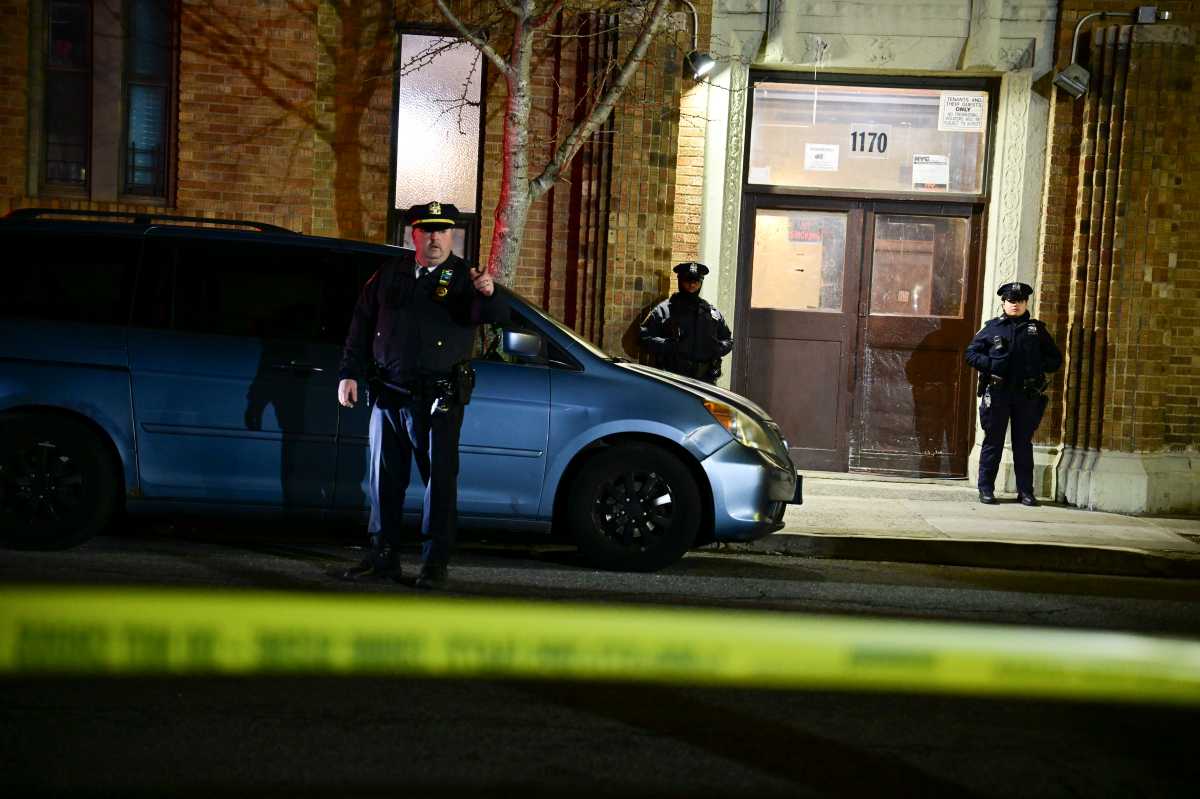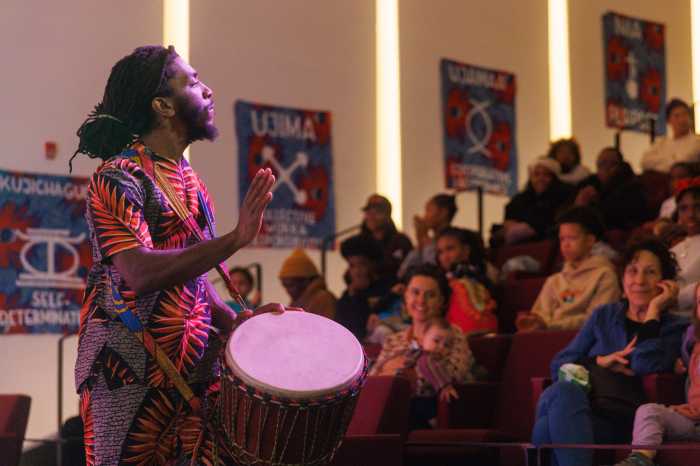
If “Crashing” has taught us anything, it’s that fame is cyclical, and the lows come just as often as the highs. OK, the lows come a little more often.
“Crashing” Pete, portrayed by Pete Holmes, returns from his college comedy tour in the third season of the HBO series, airing this Sunday at 10 p.m. Fans expecting him to head back into the New York City stand-up scene a completely changed man might not know the series as well as they thought.
The start of season 3 gifts us with a Pete brimming with newfound confidence. And in this case, that confidence translates to success in the romantic realm.
Below, Holmes and new series cast member Madeline Wise, who appears as Pete’s new love interest, discuss what’s to come for the hopeful comic this season.
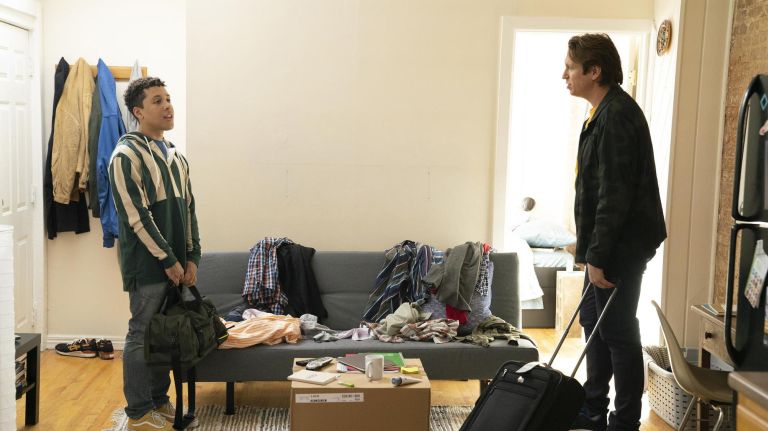
Pete, there’s a fun meta moment early on where you offer your place to a college student to crash after two years of crashing on other people’s couches.
Pete Holmes: Yeah! I think this is the first season my character has an ego. I mean, a noticeable ego. He starts to think that just because he killed or did well at a bunch of colleges that he must already be a made guy and therefore deserving of the position of mentor and can take the Artie [Lange] position, but we figure out pretty quickly he decided that too soon.
How might we see that for Pete, leaving New York City and trying to come back into the scene isn’t easy?
P.H.: It’s interesting in New York, especially, no one cares about what you did on the road. I’ve seen people make that mistake. I’ve probably even made that mistake, where you have this experience in North Dakota and you come back to New York and think because you made a little bit of money and have a new apartment, new jacket that people respect you. But really, they only care about what you’re doing on stage. That’s why we made him do a sort of popcorn set at the [Comedy] Cellar. That’s certainly the sort of joke I would do out of college, but it’s not enough to get him respect.
Why was it important for you to bring him back to New York and not jump ahead to a more successful place in his career?
P.H.: To me, the most important thing about a comedian is the struggle. In my experience, you have to make it over and over and over and there’s no final making it unless you’re, I guess, Tom Cruise. He’s still going out with something to prove and it’s really about the struggle. As soon as he cracks into show business, then it becomes a different show.

He has slightly changed, though, since he has enough confidence to date your character, Madeline. How does she help Pete become who he needs to be at this point in his journey?
Madeline Wise: I think she identified in him that he’s not totally in touch with his own ambition or that he’s sort of embarrassed by his own ambition because of the way he was raised. She has sort of figured out in her own life that it’s not worth it to worry about what other people think of you or to have this separation of personalities where it’s like sometimes Pete is a nice clean Christian comic and then other times he’s a bit edgier.
P.H.: She’s sort of drawing out the most confident, assured parts of him. And then as the season goes, she figures out who he really is — a real boob. A real eight, zero, zero, eight on the calculator.
Tell me more about why there are a few points in this season where the script touches on the idea that comedians "are a bruised people."
P.H.: We speak from my our experiences, deal with anxiety and fear and even at normal levels, those things need reckoning. Not to mention the fact that we all have impulses we’re not sure where they’re coming from. It’s very helpful to deal with those with humor and share them with an audience just as you would a therapist.
M.W.: Right, but I think it’s telling that comedians do it for an audience rather than just go to therapy and this is for actors as well, not just comedians. It’s like there’s a weird impulse to work out this trauma rather than go to a trusted friend or a paid medical professional. You just go and force people to give you money to do it on a stage, which I think is probably why it attracts a lot of that darkness and depressed people.
P.H.: That’s true. I agree with that. Comedians are very, very dark, but I always felt sort of uncomfortable in comedy clubs my whole life, you know what I mean. I loved it and it’s been a ton of fun, but there have been pockets where I’m like, "wow, we’re a weird group." When I hang out with comics, I certainly feel a type of loneliness, a certain detachment, I think.



